 W
WEzequiel Adamovsky is an Argentine historian and political activist who has written many articles and books about intellectual history, globalization, anti-capitalism and left-wing politics.
 W
WIrma Arguello is an international security expert from Argentina. She founded and chairs the Nonproliferation for Global Security Foundation, (NPSGlobal), a private, non-profit initiative oriented to help reduce risks derived from the proliferation and use of armaments, with a special emphasis on weapons of mass destruction. The organization is also devoted to building up adequate and opportune responses to such threats at all levels, in order to increase global security.
 W
WOrlando Barone, is an Argentine journalist, writer and university lecturer. As a journalist he works for the newspaper Debate and as a columnist in the TV program 6, 7, 8.
 W
WSergio Bergman is an Argentine rabbi, politician, pharmacist, writer, and social activist. In 2015, he was appointed as Minister in Mauricio Macri's cabinet, in the newly elevated Ministry of the Environment and Sustainable Development. In 2018, the Ministry was demoted back to Government Secretariat, and Bergman remained in charge as Secretary of the Environment, a position he held until 2019.
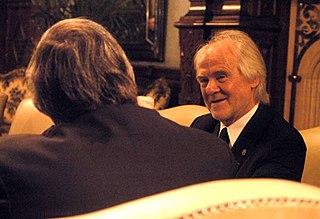 W
WJuan Carlos Blumberg is an Argentine textile entrepreneur and victims' rights advocate who rose to prominence following the 2004 murder of his son, Axel Blumberg.
 W
WMyriam Bregman is an Argentine lawyer, activist and politician. While studying a degree in law at the University of Buenos Aires in the 90s, Bregman joined the Socialist Workers' Party (PTS), a Trotskyist Argentine party of which she is among the main referents.
 W
WFacundo Cabral was an Argentine singer, songwriter and philosopher.
 W
WRaúl Castells is a controversial Argentine political activist. He is the leader of an organization called "Independent Movement for the Retired and Unemployed", a piquetero group.
 W
WLuis D'Elía is an Argentine activist and politician who served in the government of Néstor Kirchner. He is the founder and head of the Federation of Land, Housing and Habitat, which has been described as a "violent wing" of the Confederation of Argentine Workers.
 W
WRosa Graciela Castagnola de Fernández Meijide, better known as Graciela Fernández Meijide is an Argentine teacher, human rights activist and politician. She came to prominence by investigating the forced disappearances of thousands of people during the Dirty War. She later served as a deputy, senator, and government minister for the FrePaSo party.
José Ber Gelbard, was a Polish-born Argentine activist and politician, and a member of the Argentine Communist Party. He also helped organize the Confederación General Económica (CGE), made up of small and medium-sized business. Beginning about 1954, he was appointed as an economic advisor to Juan Perón and repeatedly was called back to serve as Minister of Finance to successive governments until the military coup of March 1976. He fled with his family shortly before the coup, gaining political asylum in the United States and settling in Washington, D.C.
 W
WVíctor Heredia is an Argentine singer songwriter.
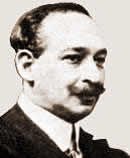 W
WJosé Ingenieros was an Argentine physician, pharmacist, positivist philosopher and essayist.
 W
WCelina Kofman was an Argentine human rights activist. By profession, Celina Kofman was one of the important members of the organization that was launched in the 1970s in the midst of the National Reorganization Process, after her son was kidnapped. He was a member from 1978 to 2000, where he had responsibility for the former Concordia and Santa Fe subsidiaries.
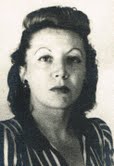 W
WNydia Lamarque (1906–1982) was an Argentine poet. In addition to publishing several books of poetry, she was a lawyer, activist, and translator. She was associated with the socialism and feminism movements.
 W
WJosé Néstor Lencinas was an Argentine politician and former Governor of Mendoza Province.
 W
WClaudio Hugo Lepratti, popularly known as Pocho Lepratti, was an Argentine political activist volunteer who worked in a poor neighbourhood in the city of Rosario, and who was shot and killed by the Santa Fe Provincial Police during the December 2001 riots, when he tried to stop police agents from firing at a children's school.
 W
WCarlos Mugica was an Argentine Roman Catholic priest and activist.
 W
WCarolina Muzzilli was an Argentine industrial researcher and social activist of Italian descent. She was the first woman to be made an official of Argentina's National Department of Employment. She did much to improve the working conditions in factories and the work place in Argentina.
 W
WAdolfo Pérez Esquivel is an Argentine activist, community organizer, painter, writer and sculptor. He was the recipient of the 1980 Nobel Peace Prize for his opposition to Argentina's last civil-military dictatorship (1976–1983), during which he was detained, tortured, and held without trial for 14 months; during that period he also received, among other distinctions, the Pope John XXIII Peace Memorial.
 W
WDr. Guillermo Rawson was a medical doctor and politician in nineteenth-century Argentina. In 1862, when he was the Interior Minister of Argentina, he met Captain Love Jones-Parry and Lewis Jones, who were on their way to Patagonia to investigate whether it was suitable for the creation of a Welsh settlement there. Rawson came to an agreement with them, and this resulted in the creation of a colony in the Chubut Valley in the following years. The city of Rawson, the capital of the province of Chubut, was named after him.
 W
WNicolás Repetto was an Argentine physician and leader of the Socialist Party of Argentina.
 W
WVilma Ripoll is an Argentine nurse and politician.
 W
WDiana Sacayán was an Argentinian LGBT activist. She worked for the legal and human rights of transgender people in Argentina.
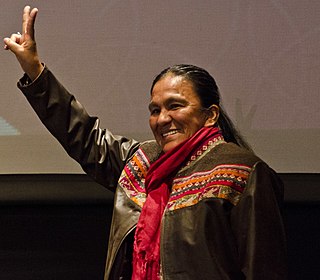 W
WMilagro Amalia Ángela Sala is a leader of the Tupac Amaru neighborhood association, part of the Association of State Workers (ATE) of Jujuy, and a leading figure in the Movimiento piquetero of Argentina.
 W
WHaydée Mercedes Sosa, sometimes known as La Negra, was an Argentine singer who was popular throughout Latin America and many countries outside the region. With her roots in Argentine folk music, Sosa became one of the preeminent exponents of La nueva canción. She gave voice to songs written by many Latin American songwriters. Her music made people hail her as the "voice of the voiceless ones".
 W
WAgustín Gringo Tosco was an Argentine union leader, member of the CGT de los Argentinos and an important participant in the historic local uprising known as the Cordobazo.
 W
WSaúl Edólver Ubaldini was an Argentine labor leader and parliamentarian for the Peronist Justicialist Party.
 W
WCarlos Vega Belgrano was an Argentine lawyer, activist, journalist, and politician who held the position of vice president of the Radical Party in 1896. He had a long career as a journalist director of the La Revista Nacional and El Tiempo, an evening newspaper founded by him.
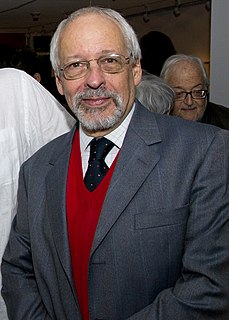 W
WHoracio Verbitsky is an Argentine left-wing investigative journalist and author with a past history as a leftist guerrilla in the Montoneros. In the early 1990s, he reported on a series corruption scandals in the administration of President Carlos Menem, which eventually led to the resignations or firings of many of Menem's ministers. In 1994, he reported on the confessions of naval officer Adolfo Scilingo, documenting torture and executions by the Argentine military during the 1976–83 Dirty War. His books on both the Menem administration and the Scilingo confessions became national bestsellers. As of January 2015 Verbitsky is a Commissioner for the International Commission against the Death Penalty.
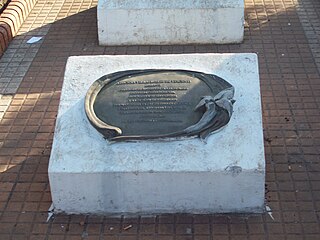 W
WAzucena Villaflor was an Argentine social activist, and one of the founders of the human rights association called Mothers of the Plaza de Mayo, which looked for desaparecidos.
 W
WVictoria Eugenia Villarruel is an Argentinian lawyer and activist who is the founder and president of the Centro de Estudios Legales sobre el Terrorismo y sus Víctimas, known as CELTYV.
 W
WJuan Hipólito del Sagrado Corazón de Jesús Yrigoyen was an Argentine politician, from the Radical Civic Union, and two-time President of Argentina who served his first term from 1916 to 1922 and his second term from 1928 to 1930. He was the first president elected democratically by means of the secret and mandatory male suffrage established by the Sáenz Peña Law of 1912. His activism was the prime impetus behind the passage of that law in Argentina.